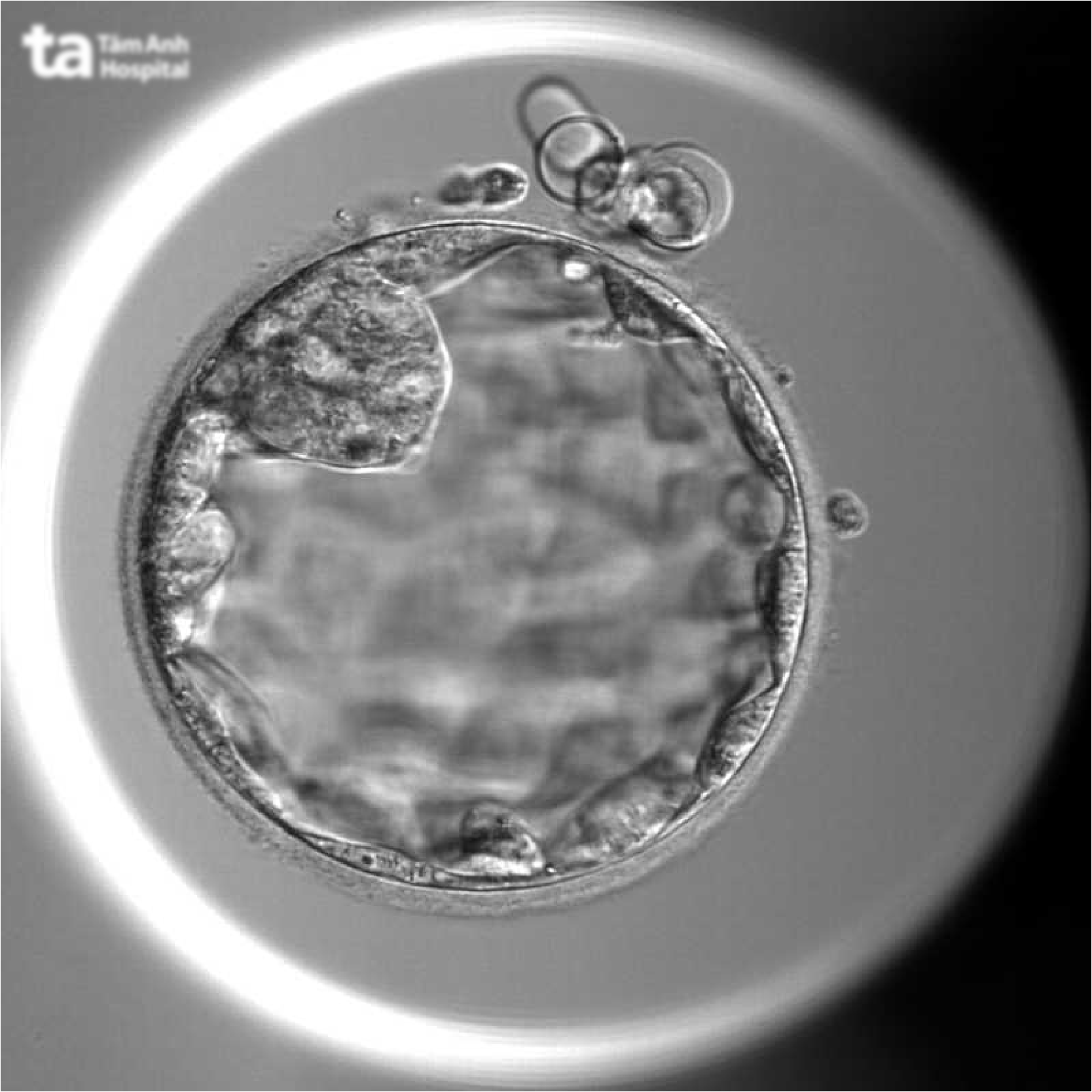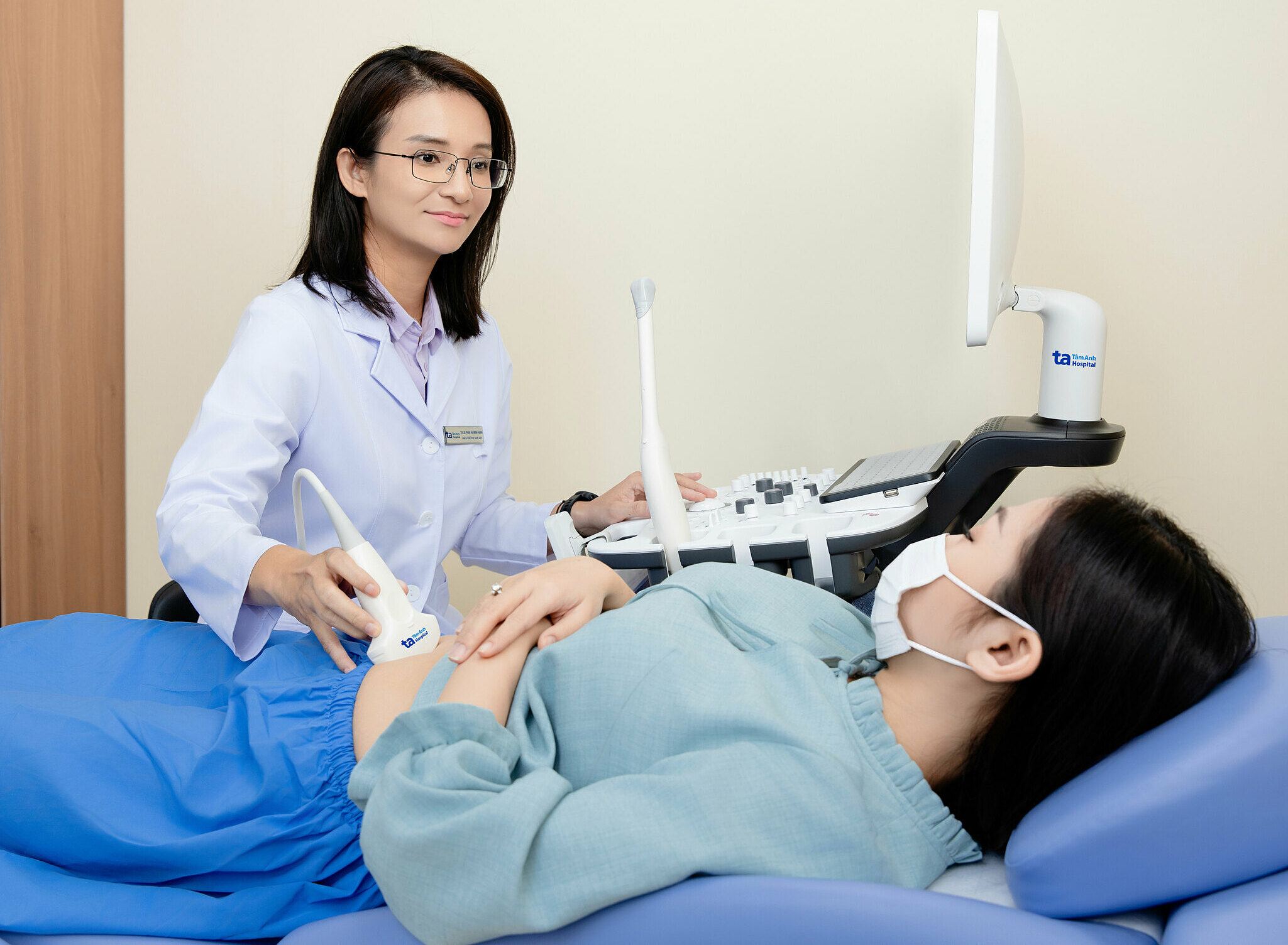Tuyet and her husband had been trying to conceive for three years without success due to his blocked sperm ducts and her endometriosis. Doctors at the Assisted Reproduction Department, Tam Anh General Hospital - District 8, employed a "couple therapy" approach, treating both simultaneously.
Sperm was extracted from the husband's epididymis through microsurgical epididymal sperm aspiration (MESA), while 17 eggs were retrieved from Tuyet. Embryologists selected 17 suitable sperm for intracytoplasmic sperm injection (ICSI) into each egg, followed by cultivation in a time-lapse incubator. Continuous camera monitoring revealed that most embryos fragmented, divided abnormally, or ceased development early, leaving only three embryos reaching the day-3 stage.
According to Doctor Phan Ha Minh Hanh, the early developmental failure of three-quarters of Tuyet's embryos could be attributed to poor egg and sperm quality. Day-3 embryos have a lower implantation rate, and any abnormalities further reduce the chances of successful implantation. The couple proceeded to culture the embryos to the day-5 stage, but only a single grade-3 embryo was obtained.
 |
Image of a day-5 embryo cultivated at Tam Anh IVF. *Photo: Thu Thao* |
Dr. Hanh explained that day-5 embryos, containing approximately 100-200 cells, have largely overcome developmental abnormalities. They form structures similar to a real embryo, including an outer layer and an inner cell mass, making it the optimal stage for embryo transfer. Research indicates that the success rate of day-5 embryo transfers is 1.35 times higher than that of day-3 embryos.
However, Tuyet's single day-5 embryo was only grade 3, indicating lower quality and a 50% reduced implantation rate compared to grade 1 and 2 embryos. To improve her chances, Dr. Hanh implemented a treatment plan to suppress the endometriosis.
In early July, doctors prepared Tuyet's uterine lining for the embryo transfer. She is currently 12 weeks pregnant and in good health.
 |
Doctor Phan Ha Minh Hanh performing an ultrasound on a patient. *Illustrative photo: Nguyen Thang* |
According to Master Nguyen Huyen Minh Thuy, Head of the IVF Lab at Tam Anh - District 8, embryo quality depends on several factors, including sperm and egg quality, and cultivation technology. Sperm and egg quality are objective factors influenced by genetics, underlying conditions, and the patient's age, and cannot be changed. However, an optimal culture environment is the most crucial "lever" for maximizing fertilization and embryo development.
At Tam Anh IVF, the incubation system is designed with individual chambers for each patient, minimizing external influences on embryo development. The system also integrates 24/7 camera monitoring, promoting better embryo development and increasing the rate of cultivation to the day-5 stage. In 2024, the overall pregnancy rate after embryo transfers at Tam Anh IVF in Ho Chi Minh City was over 78%, reaching nearly 85% for women under 28. For women over 40, who typically face greater challenges and a higher risk of requiring donor eggs, the pregnancy rate was over 48%.
Hoai Thuong












